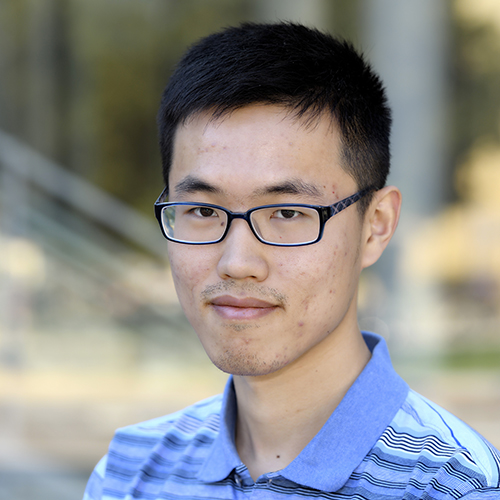Rex Ying: Applying Graphs to Advance Artificial Intelligence
The School of Engineering & Applied Science is proud to welcome its newest faculty members for the 2022-23 academic year. The large influx of faculty members – 13 so far, with more to be announced soon – marks the rapid growth of the School and investment in the research areas illustrated in the SEAS Strategic Vision.
The latest faculty arrivals are valuable additions to the chemical and environmental, computer science, and electrical engineering departments. Their expertise includes sustainability, artificial intelligence, robotics, quantum computing, cybersecurity, and optoelectronic materials.
Upon their arrival, we asked these new faculty members questions about their work, their motivations, potential collaborations, and much more:

Rex Ying, Computer Science
Hometown:
Hangzhou, China
Prior academic history:
- Ph.D., Stanford University
- B.S., Duke University
How would you summarize your research?
Real-world data can often be expressed in the ubiquitous language of graphs, a general concept of entities connected by relations. I focus on developing expressive, scalable and explainable algorithms that incorporate and leverage such relational inductive bias for data expressed as graph structure, via graph neural networks and geometric learning. I have worked on graph learning applications in recommender system, anomaly detection, social network analysis, protein networks, drug discovery, physical simulations and much more.
What inspired you to choose this field of study?
My interest and dedication to this field comes from the realization that graphs are a very general representations and descriptions of our world, from human knowledge to the structure of our society, to phenomena found in nature and science. Even the human brain (connectome) operates in a graph-structured fashion. I believe that learning graphs is a critical component towards artificial general intelligence.
Where do you see the field 10 years from now?
I believe that graph learning will become a crucial component in the AI ecosystem. One of my visions is to create domain-specific and continuously evolving "knowledge graphs," in domains such as social platforms or healthcare. The system collects data from different modalities (such as images, text, videos) and can solve various downstream AI tasks for users of the system. All users in the same domain share the same knowledge graph, which acts as a central "brain" that can push the boundary of human knowledge. Big models such as those language models in NLP are going towards that direction and I believe that graphs should be part of it too.
What brought you to Yale?
What attracts me the most is the opportunity to collaborate with other departments and he Yale School of Medicine with almost no boundaries and limitations. My research can greatly benefit from the availability of real-world data and applications. I'm also excited that Yale's Computer Science department has the vision to expand and be a leader in information technology and AI research and I would like to contribute to this goal and be part of this journey.
What areas outside of Computer Science do you seek to create impactful research collaborations or partnerships?
In general, I seek to create research collaboration with natural science labs (e.g. biology, physics), and industry IT platforms.
In the past, I have collaborated with chemistry and biology experts on the discovery of novel molecules as candidates for drugs. I also collaborated with SLAC National Accelerator Laboratory at Stanford on learning simulations for plasma physics. I'm also a founding member of kumo.ai, and I did research regarding AI cloud platform for data warehouses.
Are there any courses that you look forward to teaching/creating?
I'm going to teach the new course on "deep learning for graph-structured data" in the Fall. Deep graph learning has made significant progress and attracted incredible attention over the last three to four years. In fact, there are as many papers on graph learning as popular fields like NLP and RL in ICLR nowadays. I'm excited to present a systematic overview of graph learning, and share what incredible applications we could build with this new technology.
What are your interests outside of the lab?
I'm interested in piano, table tennis, and novels. I'm also enthusiastic about food tasting from all over the world.
What is the best New Haven Pizza?
I don't know since I'll be moving to Yale this August. But I always like the Hawaiian Pizza despite its controversy.

